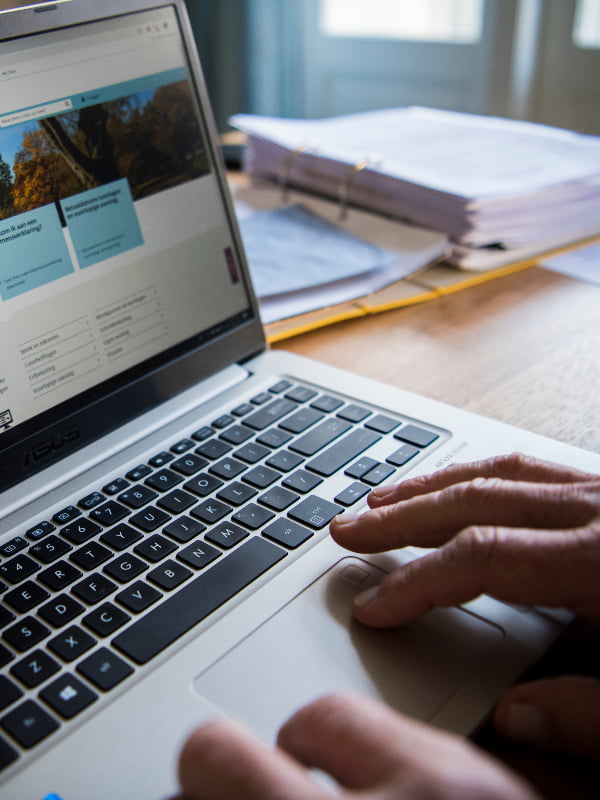False messages (phishing)
Some emails, letters, texts, or WhatsApp messages may appear to have been sent by us, but this is not the case. This is also known as phishing.

Payment requests and personal data
Phishing messages often want money from you or personal data, which a criminal can use to abuse you or your company. When you share personal data, you run the risk of becoming a victim of identity fraud. Be cautious with your personal identity details, including your passport, ID card, or driving licence.
The Netherlands Enterprise Agency (RVO) never sends direct payment requests. If you owe us money, you will receive a letter. We never send messages about payment arrears or ask you to transfer money via WhatsApp, email or telephone. You can also find payment information in MijnRVO at all times.
Are you not sure if a message is from the Netherlands Enterprise Agency (RVO)?
Have you received a message from the Netherlands Enterprise Agency (RVO) asking for money? Or for personal details? Then you may be dealing with a phishing email. Never click on a link in such a message, never open an attachment and do not respond to the request. Are you not sure whether a message is from the Netherlands Enterprise Agency (RVO)? Then follow these 3 steps.
A phishing message or call can appear genuine. However, specific details are often incorrect. For example, an email address or bank account number. These are the Netherlands Enterprise Agency (RVO) details that you can check in a message:
Email addresses
Our email addresses end with @rvo.nl. For example:
The following email addresses end differently, but are also reliable:
- rvo.nl@nieuwsservice-rvo.nl
- rvo@pleio.nl en noreply@mail.pleio.nl
- no.reply@kcmsurvey.com (contracted research agency)
- rvo@blauwsurvey.com (contracted research agency)
You can read more about how to recognise a phishing email on the website of the Digital Trust Centre (in Dutch) or read how to protect your business.
Bank account number
We use different account numbers. You can find these at rekeningnummers van RVO (In Dutch).
Website
Our website is https://www.rvo.nl. Our English-language website is https://english.rvo.nl. All pages on our website start with this URL.
On MijnRVO, you can see which messages you have received from us. If the message is not listed in MijnRVO, please contact us.
Have you completed the steps above, and are you sure that you received a phishing message? You can help us by reporting this to us. You can read how to do this below.
A phishing message from suppliers
The Netherlands Enterprise Agency (RVO) uses various platforms, including DigiD and eHerkenning. Phishing can also occur using the look of these platforms. For example, you may receive a message stating that you must log in with eHerkenning to transfer an amount to the Netherlands Enterprise Agency (RVO). Again, never click on a link in such a message, never open an attachment and do not respond to the request. Login via DigiD and eHerkenning always takes place via our website.
Reporting a phishing message
Have you received a phishing message? You can help by reporting it to us.
Email the Netherlands Enterprise Agency (RVO) directly.
Send an email to phishing@rvo.nl. The relevant department will be notified immediately. Have you received a phishing email? You can easily forward it to us. Have you been contacted by telephone? Please let us know what the person called about (a specific scheme or subsidy) and their name. Have you received a WhatsApp message or text message? Please take a screenshot and attach it to the email.
Reporting on Fraudehelpdesk.nl
On the website fraudehelpdesk.nl, you can see which phishing emails were sent under the pretence of the Netherlands Enterprise Agency (RVO). You can report fraud here so that others can also see this example.
What happens next?
Have you reported a phishing message to phishing@rvo.nl? You will receive confirmation when we have received your email. We will forward your report to the appropriate department and take action where possible. You will not be notified of this.



